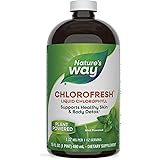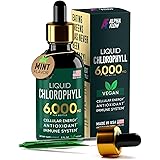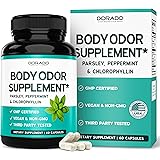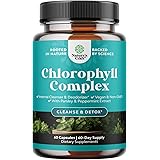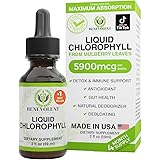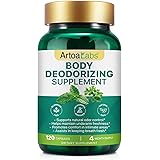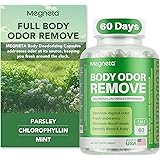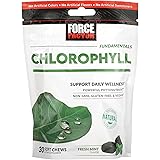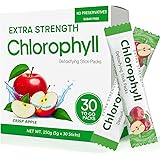The quest to naturally manage stress and keep cortisol levels in check is a significant focus in modern wellness. As the accompanying video succinctly highlights, certain dietary choices can play a pivotal role in this intricate physiological dance. This article delves deeper into the science behind these potent foods, elaborating on their mechanisms of action and how they serve as powerful allies in cultivating a resilient stress response.
Cortisol, often dubbed the body’s primary stress hormone, is meticulously regulated by the hypothalamic-pituitary-adrenal (HPA) axis. While essential for acute stress response and various bodily functions, chronic elevation of cortisol can lead to a cascade of adverse health effects, including impaired immune function, metabolic dysregulation, and cognitive decline. Fortunately, specific nutrients and bioactive compounds found in everyday foods possess the remarkable ability to modulate this response, fostering a greater sense of calm and physiological balance.
Dark Chocolate: A Sweet Path to Serenity
Among the most appealing suggestions for stress reduction is the consumption of dark chocolate. The video briefly mentions theobromine, a key compound contributing to dark chocolate’s mood-enhancing properties. Beyond its pleasurable taste, dark chocolate, particularly varieties with 70% cocoa or higher, is a rich source of antioxidants, including flavonoids and polyphenols, which collectively exert profound anti-inflammatory and neuroprotective effects.
Theobromine and Mood Modulation
Theobromine, a stimulant akin to caffeine but with a milder and more sustained effect, is not merely responsible for the subtle energy boost associated with chocolate. It interacts with adenosine receptors in the brain, which can lead to increased alertness, improved mood, and a sense of euphoria, effectively acting as a counter-signal to the physiological processes that elevate cortisol. Consider the brain as a complex musical ensemble; while stress might introduce discordant notes, theobromine helps the neurochemical orchestra find its harmony again, fostering a state of calm focus.
Furthermore, the complex array of compounds in dark chocolate can stimulate the production of feel-good neurotransmitters such as serotonin and dopamine. These neurotransmitters are crucial for mood regulation and directly oppose the effects of stress hormones. Incorporating a small, high-quality piece of dark chocolate into your daily routine can therefore be more than a treat; it can be a strategic nutritional intervention to naturally decrease cortisol.
Fish and Seafood: Omega-3s as Adrenal Architects
The video astutely points to fish and seafood, particularly their rich content of omega-3 fatty acids, as critical for inhibiting adrenal activation. This is a crucial insight into how diet influences the body’s stress machinery. Omega-3s, specifically eicosapentaenoic acid (EPA) and docosahexaenoic acid (DHA), are polyunsaturated fats renowned for their anti-inflammatory properties and their indispensable role in brain health.
Omega-3s and HPA Axis Regulation
Studies consistently demonstrate that omega-3 fatty acids possess the capacity to modulate the HPA axis, the central command center for stress response. By acting as subtle architects of cellular membranes and signaling pathways, omega-3s can dampen the overactivity of the adrenal glands, which are responsible for releasing cortisol. Think of them as experienced air traffic controllers, preventing the ‘stress signals’ from crashing the system and ensuring a smoother, more controlled response to perceived threats.
Beyond their direct influence on adrenal function, omega-3s are vital for overall neuronal health and neurotransmitter function. They contribute to the structural integrity of brain cells and facilitate efficient communication between neurons, which can significantly enhance resilience to stress and improve mood stability. Regular consumption of fatty fish like salmon, mackerel, sardines, and trout can therefore be a foundational strategy for those aiming to decrease cortisol and bolster their mental fortitude.
Green and Black Tea: Polyphenols as Stress Shields
Green and black teas are celebrated globally not just for their invigorating aromas but also for their profound health benefits, largely attributable to their polyphenol content. As highlighted, these polyphenols are powerful agents in the fight against stress. Both teas originate from the *Camellia sinensis* plant, with the difference in processing determining their final classification and somewhat their chemical profile.
Polyphenols, L-Theanine, and Cortisol Modulation
Polyphenols, a broad category of plant compounds, act as robust antioxidants, neutralizing harmful free radicals that contribute to cellular damage and inflammation, both of which can exacerbate physiological stress. These compounds, along with unique amino acids like L-theanine found predominantly in green tea, work synergistically to promote relaxation without sedation. L-theanine specifically has been shown to increase alpha brain wave activity, a state often associated with meditation and calm alertness.
Consider polyphenols as the body’s internal shield and L-theanine as a calming conductor. While polyphenols actively protect cells from the oxidative stress induced by high cortisol, L-theanine helps to orchestrate a tranquil state within the brain, reducing the perception of stress and consequently, the physiological stress response. The combination effectively helps to decrease cortisol levels by addressing both the symptomatic and root causes of stress-induced physiological imbalance.
Beyond the Plate: Holistic Cortisol Management
While specific foods are invaluable, a comprehensive approach to stress and cortisol management integrates dietary wisdom with lifestyle practices. These foods function as powerful components within a broader framework of wellness. They are not merely isolated remedies but synergistic elements contributing to a robust physiological system designed to withstand the pressures of modern life.
Incorporating nutrient-dense foods that support adrenal health and neurological function is a proactive step towards hormonal equilibrium. For instance, magnesium-rich foods like leafy greens, nuts, and seeds also play a crucial role in regulating the stress response. Vitamin C, found in citrus fruits and berries, is vital for adrenal gland function. These elements, when combined with the cortisol-decreasing power of dark chocolate, omega-3s, and teas, create a formidable defense against chronic stress.
Ultimately, making informed dietary choices is a potent strategy to naturally decrease cortisol and foster greater resilience. The foods discussed—dark chocolate, fish/seafood, and green/black tea—offer targeted benefits, working through various biological pathways to soothe the nervous system and modulate the hormonal cascade of stress. By integrating these dietary powerhouses into a balanced lifestyle, individuals can significantly enhance their capacity to manage stress effectively and maintain optimal physiological health.


